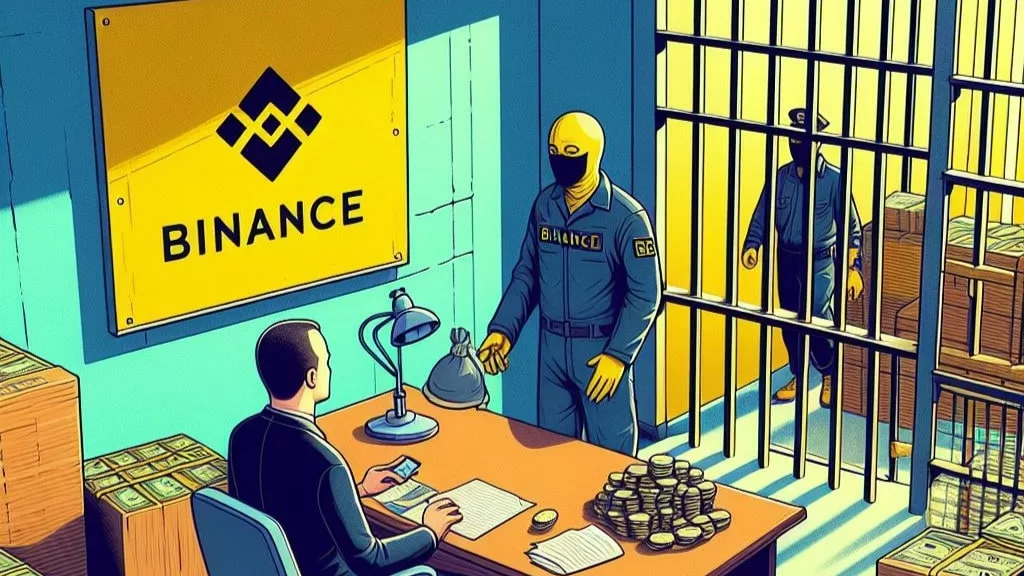
Gambaryan’s ordeal began when he responded to an invitation from Nigerian authorities aimed at resolving tensions between Binance and the government. Little did he anticipate the gravity of the situation awaiting him. After six weeks in detention, he faced the courts on April 8, where he pleaded not guilty to allegations claiming that he, along with Binance and a colleague, had concealed millions of dollars in revenue from illicit activities in Nigeria.
The judge’s ruling to remand Gambaryan to Kuje prison pending a bail hearing sent shockwaves through the international community. Kuje prison gained notoriety following a 2022 Islamic State attack, revealing underlying issues of overcrowding and poor living conditions. Despite objections from Gambaryan’s defense team, the judge deemed the prison a suitable holding facility, citing legal precedent and the prosecution’s arguments.
While Gambaryan’s legal battle unfolds, questions surrounding the fairness of his treatment and the conditions of Nigerian prisons loom large. Reports of appalling living conditions and overcrowding cast a shadow over the country’s justice system, raising concerns about human rights violations. Furthermore, Gambaryan’s case highlights the complexities of international relations in the context of financial crimes and legal proceedings.
Amidst these developments, Binance has issued a statement urging the Nigerian government to ensure fair treatment for Gambaryan. However, the escape of his colleague, Nadeem Anjarwalla, adds a layer of complexity to the situation, potentially impacting Gambaryan’s prospects of securing bail. Furthermore, Gambaryan’s previous lawsuit against the Nigerian government alleging human rights violations underscores the high stakes involved in his legal battle.
As Gambaryan prepares to face separate tax evasion charges from Nigeria’s Federal Inland Revenue Service, the spotlight intensifies on the intersection of law, finance, and international diplomacy. His case serves as a stark reminder of the challenges inherent in navigating the complexities of global business operations amidst legal uncertainties and geopolitical tensions.
The saga began innocuously enough, with Gambaryan responding to an invitation from Nigerian authorities to resolve tensions between Binance and the government. Little did he know that this gesture of diplomacy would land him in the crosshairs of the law.
Facing charges of concealing $35.4 million in revenue from illicit activities in Nigeria, Gambaryan’s predicament worsened when he was arraigned before a federal court on April 8. Despite pleading not guilty, the judge ruled in favor of his transfer to Kuje Prison, renowned for its harrowing conditions and a target of a 2022 Islamic State attack.
Gambaryan’s defense, initially contesting his representation of Binance and advocating for his detention by the Economic and Financial Crimes Commission (EFCC), faced setbacks as the judge upheld the prosecution’s arguments. Now, Gambaryan awaits a bail hearing on April 18, hoping for reprieve from his incarceration.
The prospect of life in a Nigerian prison paints a grim picture for Gambaryan. Reports of appalling hygiene, overcrowded cells, and substandard living conditions cast a shadow over his future behind bars. With Kuje Prison already operating beyond capacity, Gambaryan’s stay promises to be fraught with challenges.
In conclusion, the unfolding saga of Binance executive Tigran Gambaryan in Nigeria sheds light on broader issues of justice, human rights, and international cooperation. As legal proceedings continue, the world watches with bated breath, hoping for a resolution that upholds principles of fairness and transparency in the face of adversity.


Get the latest Crypto & Blockchain News in your inbox.